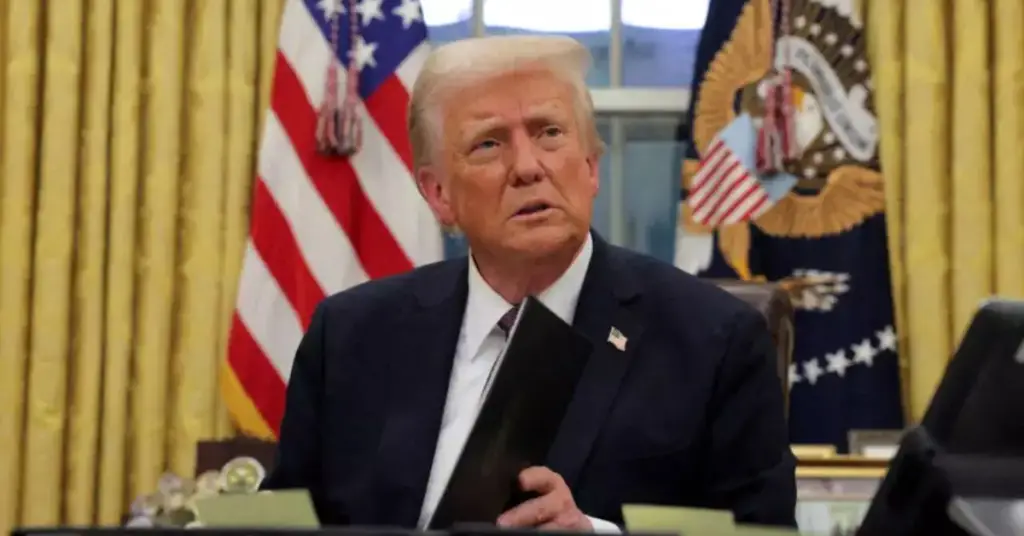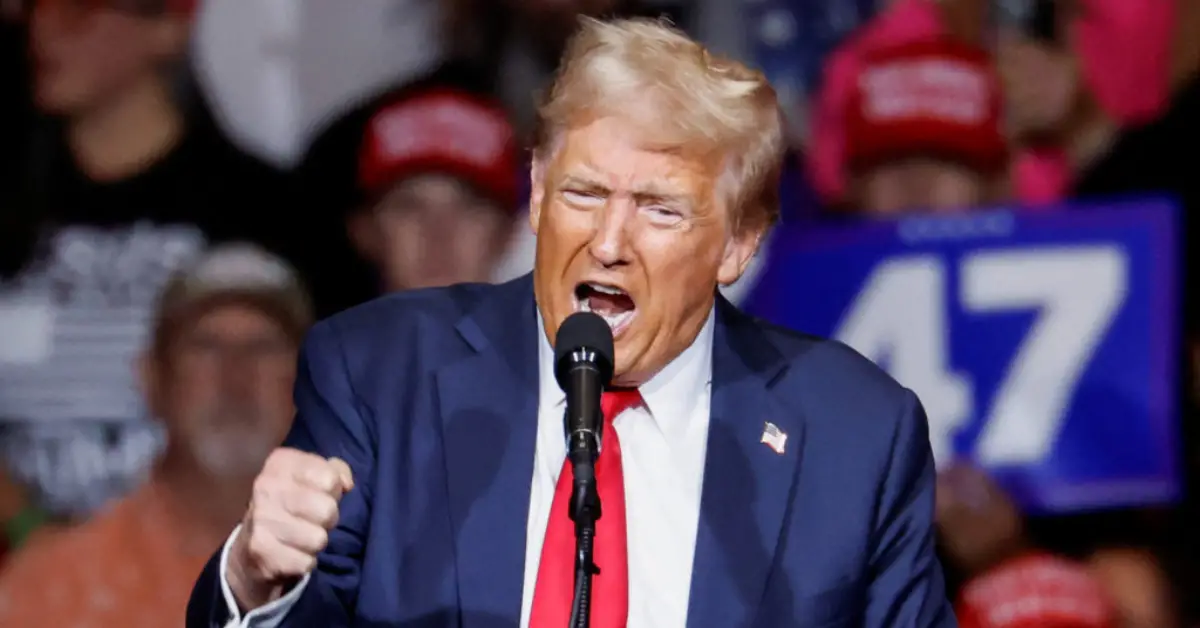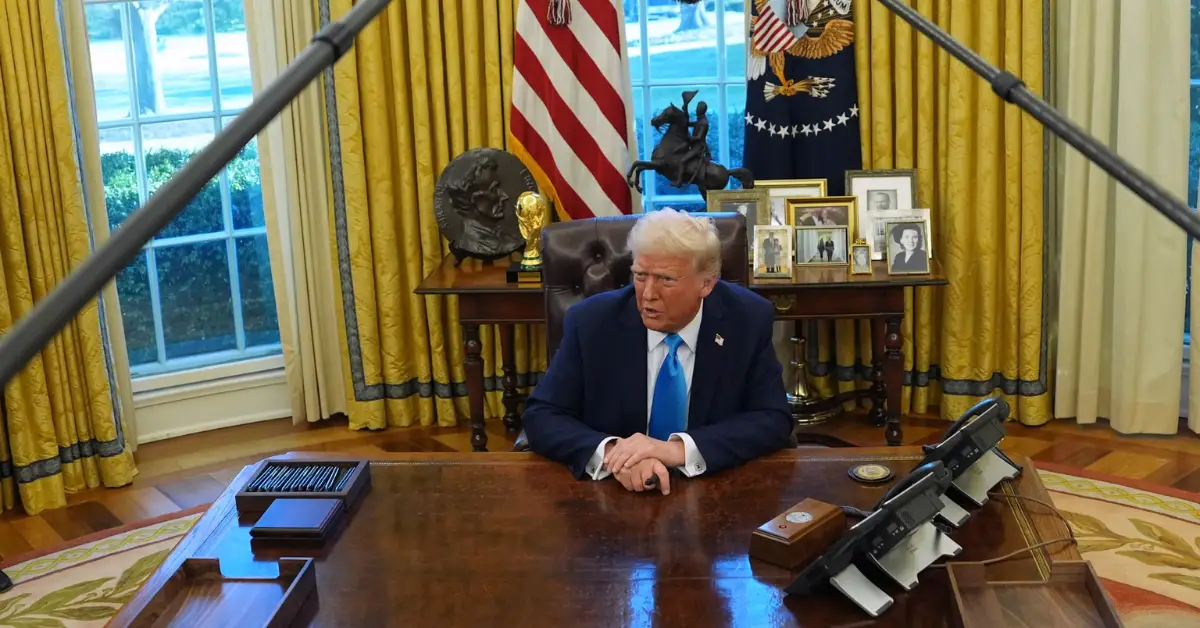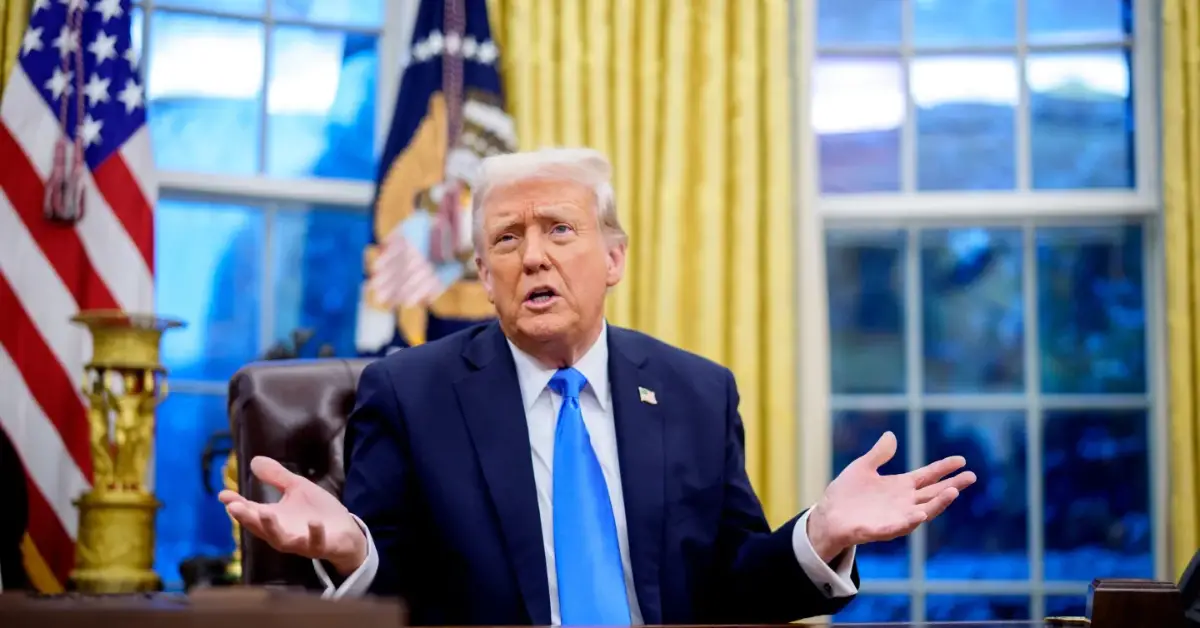The Trump administration is preparing to slash approximately $9.3 billion in funding from several prominent public institutions, including National Public Radio (NPR), the Public Broadcasting Service (PBS), and the U.S. Agency for International Development (USAID).
This funding cut, which is part of President Trump’s ongoing efforts to challenge public broadcasting, is expected to be presented to the Republican-led House of Representatives when they return from their Easter break on April 28th.
The proposed cuts have raised eyebrows, particularly because they target organizations that are funded in part by taxpayer money. President Trump and his administration have long accused public broadcasters, including NPR and PBS, of having liberal biases.
Over the years, President Trump has frequently criticised these outlets, claiming that they promote “radical, woke propaganda disguised as ‘news.'” These accusations have now culminated in a formal request for funding cuts, arguing that taxpayer money should not support what the administration considers biased content.
In a statement released by the White House, several examples were cited to justify the cuts. Among these was an NPR feature aired on Valentine’s Day that discussed “queer animals.” The White House labelled this topic as one of the examples of what it considers to be objectionable content.
Another issue raised was a PBS documentary advocating for reparations, which the administration viewed as a politically charged stance. Additionally, NPR aired a segment on “genderqueer dinosaur enthusiasts” and “trans-ceratops,” which further fueled the administration’s concerns about the direction of public broadcasting.
PBS has also been criticised for airing a children’s program that featured a drag queen. This particular program has raised the ire of conservative groups, who argue that children should not be exposed to such content.
Other controversial issues included NPR’s discussion of “healthism,” as well as reports on “latent fatphobia,” and a 2017 NPR story on cannibalism, which included an anecdote about consuming human placenta. These examples have all been used by the administration to argue that public broadcasting is pushing an ideological agenda that doesn’t represent the views of many American citizens.
The White House’s frustration with NPR and PBS also stems from past actions by the organizations. One of the most notable instances was NPR CEO Katherine Maher’s past social media posts, in which she called President Trump a “fascist.”
While Maher later apologised for these comments, the administration pointed to this as evidence of bias within the organisation. Additional studies have also suggested that PBS tends to offer disproportionately negative coverage of Republicans while frequently using terms like “far-right” to describe conservative viewpoints. In contrast, terms like “far-left” are used far less frequently.
Another point of contention is NPR’s dismissal of the COVID-19 lab leak theory, which many conservatives have argued is a crucial part of the conversation about the virus’s origins. The administration has cited this as an example of NPR’s failure to represent diverse viewpoints, particularly those held by a significant portion of the American population.

The push to eliminate funding for NPR, PBS, and USAID is not limited to concerns about bias. The Federal Communications Commission (FCC), under Chairman Brendan Carr, a Trump ally, has launched an investigation into whether NPR and PBS are violating federal laws by airing underwriting announcements that may be considered commercial advertisements.
The practice of underwriting, in which organisations like NPR raise money through corporate sponsorships, has long been a point of contention. NPR has defended this practice, and CEO Katherine Maher has expressed confidence that the FCC’s review will confirm NPR’s compliance with federal rules.
In addition to targeting public broadcasters, the administration’s proposal also aims to reduce funding for USAID, a government agency responsible for distributing foreign aid. The White House pointed to several programs funded by USAID that it deems inconsistent with President Trump’s priorities.
For example, $500,000 was allocated for electric buses in Rwanda, which the administration viewed as a misallocation of U.S. taxpayer dollars. Similarly, $750,000 was earmarked for reducing xenophobia in Venezuela, and $3 million was directed toward a children’s developmental television program in Iraq. The administration has argued that these programs do not align with U.S. interests and should be cut.
The push to defund USAID has been led by a coalition of figures, including Elon Musk, who has been vocal in his criticism of NPR and other publicly funded media outlets. Musk’s involvement has brought additional attention to the issue, particularly among conservatives who view NPR as a “liberal disinformation machine.” Musk has also been a proponent of eliminating government funding for media outlets like NPR, arguing that such organisations have a tendency to skew left politically.
Although government funding for NPR and PBS has been reduced in recent years, the Trump administration’s current request still represents a significant effort to scale back federal support for these organizations.
This push comes despite public polls that indicate that a majority of Americans support continued funding for PBS, especially for its educational programming. Despite this, the administration’s request for cuts is poised to stir debate in Congress. When the House reconvenes, lawmakers will have to consider whether to approve these cuts, which could have far-reaching consequences for the public broadcasting sector.
The ongoing debate over the funding of NPR, PBS, and USAID reflects the deep political divisions in the U.S. Public broadcasting, once seen as a neutral space for news and educational programming, is increasingly caught in the crosshairs of partisan politics. President Trump’s proposal to eliminate billions in funding is the latest chapter in this long-running debate about the role of taxpayer dollars in supporting media organizations.
The request now awaits action from Congress, and it remains to be seen whether lawmakers will approve the cuts. If they do, it could significantly reshape the landscape of public broadcasting and foreign aid. As the discussion continues, NPR, PBS, and USAID will likely find themselves under intense scrutiny, and the future of taxpayer funding for these organisations will be a key issue in the months to come.
Disclaimer: This article has been meticulously fact-checked by our team to ensure accuracy and uphold transparency. We strive to deliver trustworthy and dependable content to our readers.




